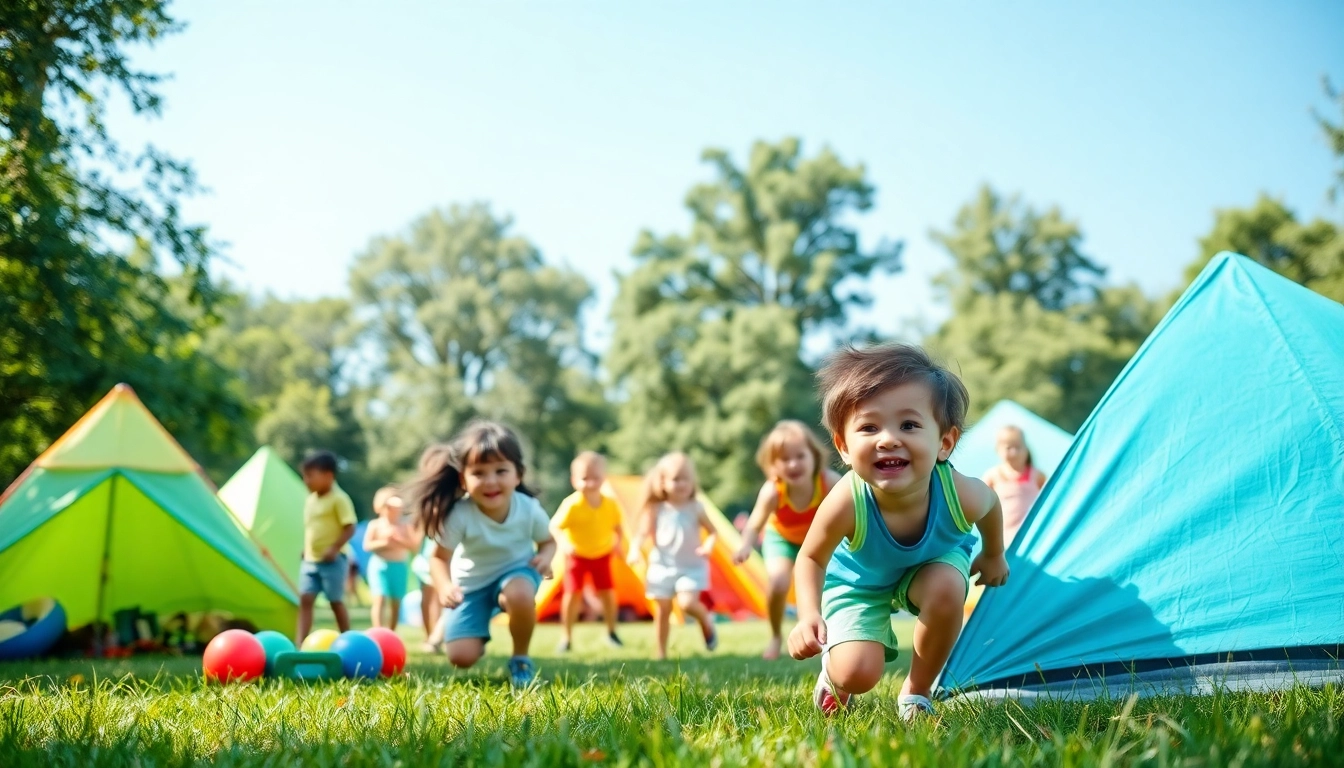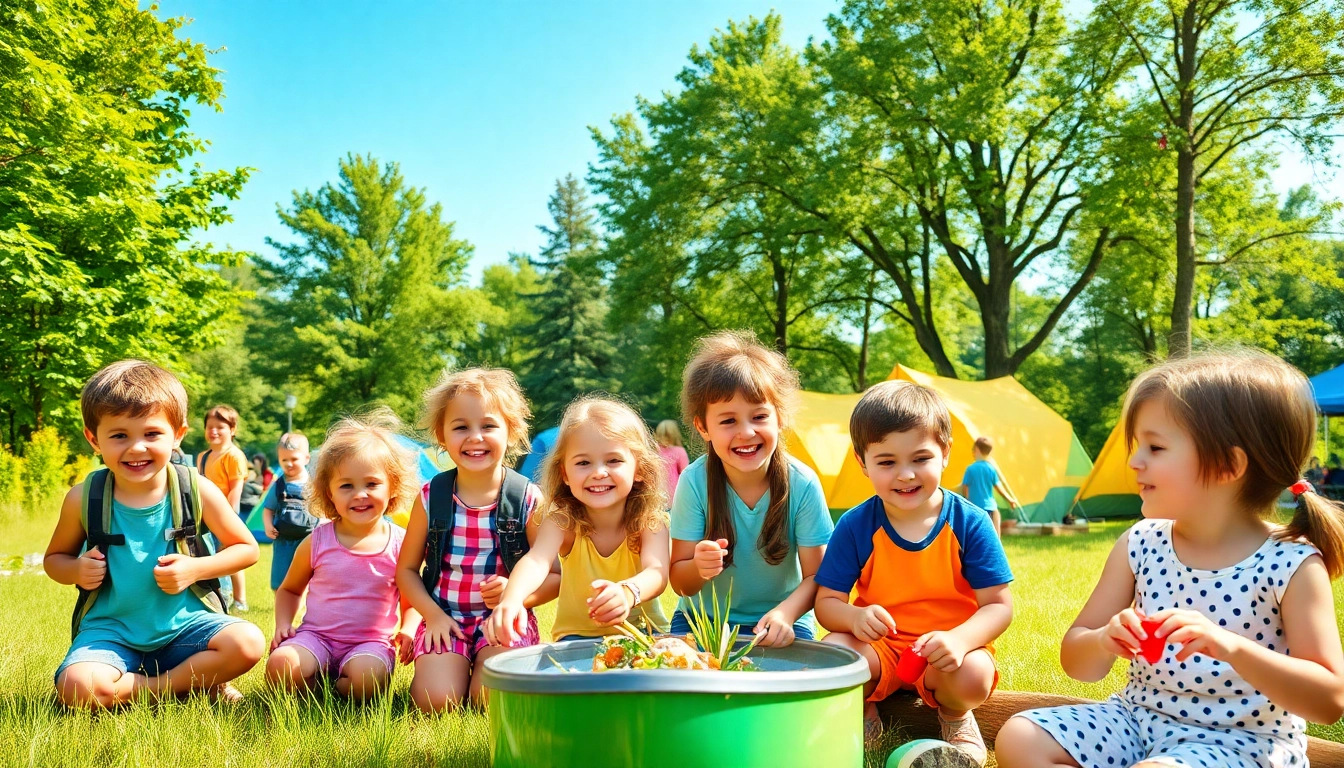Introduction to Holiday Camps
Holiday camps have surged in popularity, providing parents with solutions for entertaining their children during school breaks while ensuring they engage in productive, fun, and safe activities. These camps vary in activities, settings, and durations, catering to diverse interests and age groups. For those seeking quality holiday camps options, understanding what they encompass is essential.
What Are Holiday Camps?
A holiday camp is often a resort-style venue where participants can enjoy a range of structured activities focused on recreation and skill development. Originally popularized in the UK, holiday camps primarily include accommodations, communal dining, and various scheduled activities from sports to arts and crafts. Families can choose from day camps, which operate during the day but don’t provide overnight accommodations, or residential camps where children stay for several days and immerse themselves fully in the camp experience.
Types of Holiday Camps Available
Holiday camps can be broadly categorized into several types:
- Day Camps: Ideal for working parents, these camps provide full-day activities without overnight stays. They focus on skill development and social interaction.
- Residential Camps: These camps involve overnight accommodations, allowing for more extensive programs that may last for a week or more, encouraging teamwork and independence.
- Themed Camps: Catering to specific interests such as sports, arts, or science, these camps engage children in activities that align with their passions.
- Adventure Camps: Focused on outdoor experiences, these camps provide activities like hiking, rock climbing, and canoeing, fostering a love for nature.
- Special Needs Camps: Designed to cater to children with varying abilities, these camps focus on inclusive activities, ensuring every child feels valued and engaged.
The Benefits of Attending Holiday Camps
Participating in holiday camps offers numerous advantages for children and parents alike:
- Social Skills Development: Meeting new friends and interacting with peers in a structured setting helps children develop important social skills.
- Skill Acquisition: Camps often teach valuable skills ranging from teamwork and leadership to specific talents in sports or arts.
- Physical Activity: Many camps emphasize physical activities, promoting a healthy lifestyle and reducing screen time.
- Independence and Confidence: Residential camps especially encourage children to be independent and self-sufficient, increasing their confidence.
- Family Relief: For parents, these camps offer a timely solution during school holidays, alleviating stress regarding child care and entertainment.
Popular Activities at Holiday Camps
Each camp may offer different activities, but some popular options consistently attract children:
Outdoor Adventures and Team Sports
Outdoor activities are staples in many holiday camps. Sports such as soccer, basketball, and swimming can be found in numerous programs, promoting physical health and teamwork. Adventure activities like zip-lining, archery, or obstacle courses can be thrilling, allowing children to confront fears while building resilience and camaraderie.
Arts and Crafts Programs
Creativity is often celebrated in holiday camps through dedicated arts and crafts sessions. Activities may include painting, pottery, and various DIY projects that allow children to express themselves artistically while honing their fine motor skills. These programs often culminate in an exhibition or showcase, giving children a sense of accomplishment and pride in their creations.
STEM and Educational Camp Activities
In today’s increasingly tech-driven world, many camps emphasize STEM (Science, Technology, Engineering, and Mathematics). Programs may include coding, robotics, and science experiments, fostering a curiosity about the world and nurturing problem-solving skills. These camps can lay foundational knowledge that aids academic success in the future.
How to Choose the Right Holiday Camp
Selecting the right holiday camp for your child can seem daunting. However, with careful consideration of several factors, you can make an informed decision:
Factors to Consider When Selecting a Camp
When evaluating camps, consider:
- Age Appropriateness: Ensure the camp caters to the age group of your child, providing fitting activities and guidance.
- Facilities and Safety: Investigate the camp’s facilities and safety protocols, including cleanliness standards and emergency procedures.
- Staff Qualifications: Check that the camp employs qualified staff, including trained counselors and specialists in various activities.
- Location: Depending on your preferences, consider whether you prefer a camp close to home or one that offers a unique environment.
Reputable Holiday Camps to Consider
While there are countless camps globally, looking into established names can ensure quality experiences. Some reputable organizations include the YMCA, which offers a range of camps across the United States and focuses on community values and personal development. Other notable names include:
- Camp Sunshine: Known for its unique offerings for children with life-threatening illnesses, this camp emphasizes inclusion and support.
- Camp Invention: A nationally recognized STEM program that fosters innovation and creativity through hands-on learning.
- Girls Who Code: Offers coding camps geared specifically toward young girls, empowering them with tech skills and community.
Evaluating Reviews and Testimonials
Before finalizing a camp choice, delve into reviews and testimonials. Websites dedicated to camp information often feature parent and camper insights, highlighting the pros and cons of specific camps. Additionally, check social media platforms and local community boards, where firsthand experiences can provide a more rounded perspective on the camp in question.
Safety Measures at Holiday Camps
The safety and well-being of campers are the utmost priorities for reputable holiday camps. It’s critical to understand the various safety measures in place:
Health Regulations and Best Practices
Operating under local health guidelines, holiday camps must adhere to health regulations related to food preparation, hygiene, illness management, and emergency response. Many camps are also proactive in educating children about safety practices such as proper handwashing, recognizing hazardous situations, and following camp rules to ensure a safe environment.
Staff Qualifications and Training
Trained staff members are a cornerstone of camp safety. Staff usually undergo background checks and receive training in first aid and CPR, understanding how to handle various situations that may arise. Camps often have dedicated personnel to address health concerns, making them qualified to manage children’s needs effectively.
Emergency Protocols and Parent Communication
Precise emergency protocols are vital for preparedness. Camps should have a clear plan for various emergencies, including natural disasters, medical emergencies, or lost children. Regular communication with parents is essential, informing them of their child’s safety during the camp experience, and transparency in case of incidents is a hallmark of a trustworthy camp.
Making the Most of Your Holiday Camp Experience
To maximize the benefits of holiday camp, there are several strategies parents can implement, from preparing their children emotionally to the logistics of packing essentials:
Preparing Kids for Camp Life
Emotional readiness is key. Discuss the upcoming camp with your child, addressing any fears and outlining what they can expect. Participation in camp orientation activities or visits can help acclimatize them to the environment, making the transition smoother.
Packing Essentials for Holiday Camp
What kids bring to camp can influence their overall experience. Essentials may include:
- Comfortable Clothing: Pack clothing conducive for activities, keeping in mind the weather and potential messes.
- Personal Items: Encourage children to bring personal items that offer comfort, such as a favorite toy or a family photo.
- Sunscreen and Hygiene Products: Pack adequate sunscreen, personal hygiene items, and insect repellent to ensure they feel their best throughout their stay.
- Water Bottle: Staying hydrated is crucial, especially during outdoor activities.
Post-Camp Activities to Continue the Fun
The excitement shouldn’t end when camp does. Continuing activities learned at camp can reinforce skills and maintain social connections. Organizing playdates with newfound friends, sharing camp stories, or engaging in similar activities at home can solidify their experiences and extend the camp’s benefits beyond its duration.


